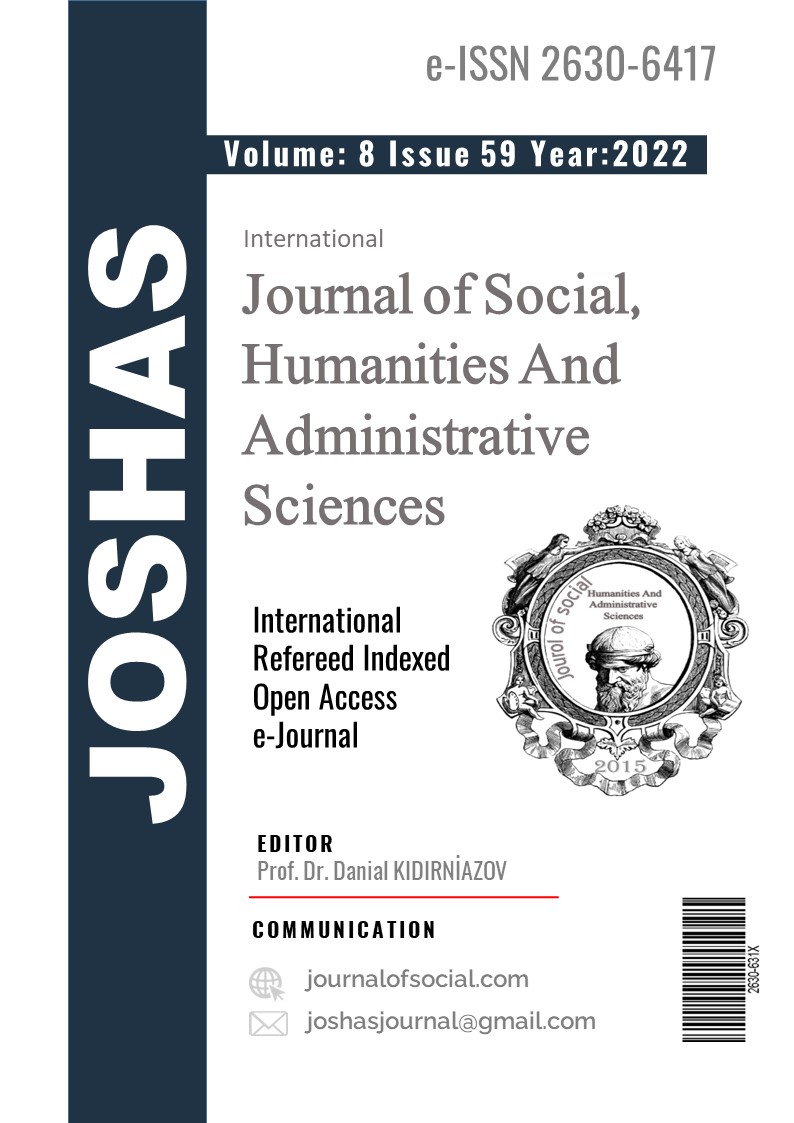Kişilik Gelişiminde Genetik Faktörler Ve Toplumsal Yapının Rolü: Mahmûd Teymûr’un Selvâ Fî Mehebi’r-Rîh Adlı Romanında Bireyin İnşası
Author :
Abstract
Modern Mısır edebiyatında anlatı türünün hem batılı forma kavuşması hem de içerik olarak yerel renklerine bürünmesi için gösterilen çaba hikâye sanatında olduğu gibi romanın doğuşunda da etkili olmuştur. Hikâye sanatının ana çizgilerine kavuşmasında önemli bir isim olan Mahmûd Teymûr (1894-1973) 1930’lu yıllardan itibaren yazdığı analitik gerçekçi hikâyelerle Mısır halkının sadece fotoğrafını çekmekle kalmamış modernitenin toplumsal yapıda meydana getirdiği değişimin aile ve birey üzerindeki etkisine de işaret etmiştir. Az sayıda roman kaleme alan Teymûr’un Selvâ fî Mehebi’r-Rîh (Rüzgârda Savrulan Selvâ, 1944) adlı romanı bireyin kişilik gelişiminde etkili olan genetik özelliklerle aile ve çevrenin etkisine odaklanan, böylelikle toplumsal yapının değişimindeki temel faktörleri irdeleyen önemli bir yapıttır. Sanayi devrimi sonrası yeni bir disiplin olarak karşımıza çıkan sosyolojinin Batı toplum yapısına odaklanmasına benzer şekilde Mısır’da değişimin yaşandığı süreçte bireyi kuşatan faktörleri etüt eden bu eser değişime doğru bir rota çizmenin ip uçlarını da içermektedir. Roman bu çerçevede değerlendirilecek ve söz konusu dönemde toplumsal yapıdaki sorunsallara işaret edilecektir.
Keywords
Abstract
The effort made for the narrative genre in Modern Egyptian Literature to gain both western form and local colors in content has been influential in the nascence of the novel as well as in the art of storytelling.Mahmoud Taymour (1894 -1973), who is an influential name in defining the main lines of the art of storytelling, not only took pictures of the Egyptian people with his analytically realistic stories written since the 1930s, but also pointed out the effect of the change in the social structure of modernity on the family and the individual. Having written a small number of novels, Taymour’s novel “Salwa in the wind” (Selvâ fî Mehebi’r-Rîh, 1944), is a major masterpiece that focuses on the effects of genetic characteristics, family and environment that are effective in the personality development of the individual, thus examining the basic factors in the change of social structure. Similar to the focus of sociology, which emerged as a new discipline after the industrial revolution, on the structure of Western society, this work, which studies the factors surrounding the individual in the process of change in Egypt, also includes the clues to draw a route towards change.The novel will be evaluated within this framework and the problematics in the social structure of the mentioned period will be pointed out.





